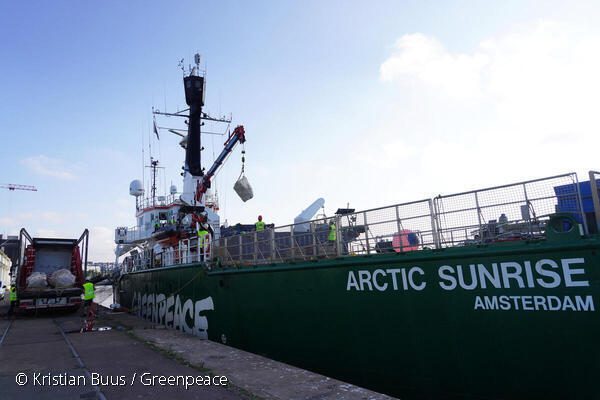
On Sunday August 28th, Greenpeace Swansea Local Group hosted a sponsored beach clean-up to raise money for the latest part of Greenpeace’s campaign to stop the industrial fishing frenzy.
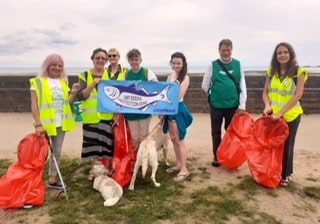
Eight stalwart members of the local group met outside the new ‘Secret Beach Bar and Kitchen’, where the old 360 degrees used to be, on the sea front, at the same time as the UWTSD Swansea Triathlon was taking place, so hundreds of swimmers were taking to the water. Thanks to the generosity of local people, Swansea Greenpeace raised £200, which will contribute towards the £10,000 cost of dropping each boulder. Local people also signed the petition [1] calling for an end to destructive fishing in Marine-Protected Areas (MPAs). Jan Brown from Swansea said:‘I really enjoyed being able to join the event with my dogs, and care about protecting our oceans, and wholeheartedly support the campaign’.The group collected five bags of litter, and bags of glass bottles, cans and plastics for recycling.
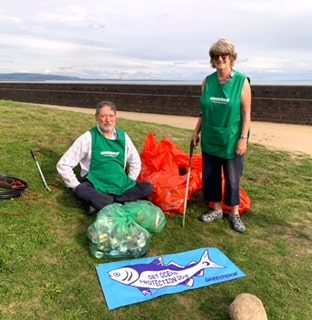
Greenpeace UK has placed 18 limestone boulders on the seabed in the South West Deeps (East) Marine Protected Area to block destructive industrial fishing.
On 1st September, campaigners and crew on board Greenpeace’s ship Arctic Sunrise sailed to the western English Channel to make a portion of the South West Deeps off-limits to bottom-trawling.
The boulder action took place days after UK leaders failed to help secure a Global Ocean Treaty during negotiations in New York, threatening the Government’s aim to achieve at least 30% ocean protection by 2030.
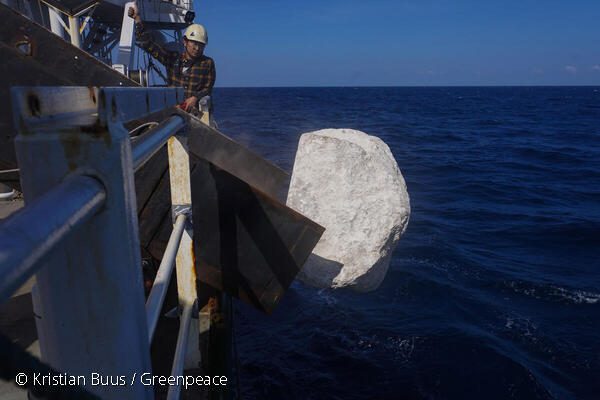
Across the entirety of the South West Deeps (East) – more than 4,600 km2 – there is not one metre of protection from destructive industrial fishing. It is one of the most heavily fished so-called Marine Protected Areas in the UK. In the last 18 months, the South West Deeps experienced almost 19,000 hours of industrial fishing, 3,370 hours of which was bottom-trawling. The majority of industrial fishing vessels in the area were from France (53%) followed by Spain (30%) and Great Britain (9%) [1].
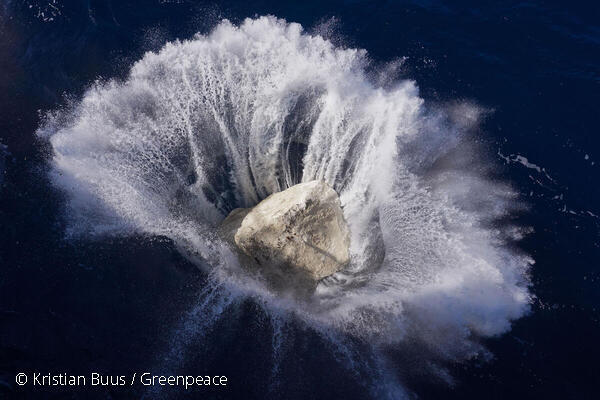
Celebrities Hugh Fearnley Whittingstall, Simon Pegg, Stephen Fry, and Daniel Lismore are supporting the action, alongside Conservative politicians Henry Smith MP, Sir Peter Bottomley MP and Theresa May’s former Downing Street environment advisor Lord Randall, as well as the Green Party’s Caroline Lucas MP. Their names were stencilled onto the boulders before being dropped into the ocean.The 18 boulders are Portland limestone, and each weighs between 500kg and 1,400kg. They make it impossible for bottom-towed fishing gear to be dragged along the seabed. Artists from the Portland Sculpture and Quarry Trust created a giant ammonite sculpture out of one of the boulders, which will be placed on the seabed alongside the others. The sculptors took inspiration from the ammonite fossils found in Portland limestone.
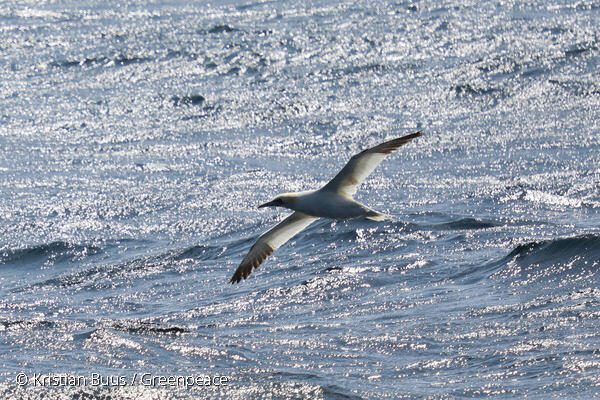
Volunteer Enid Owen continued ‘As acoastal city, we know how important our oceans are for fishing communities, tourism and tackling climate change. The boulder barrier is a last resort to save the UK’s marine life; we would prefer that the Government just did their job and kept long-standing promises to end destructive fishing in MPAs.’
Help keep news FREE for our readers
Supporting your local community newspaper/online news outlet is crucial now more than ever. If you believe in independent journalism, then consider making a valuable contribution by making a one-time or monthly donation. We operate in rural areas where providing unbiased news can be challenging. Read More About Supporting The West Wales Chronicle
























